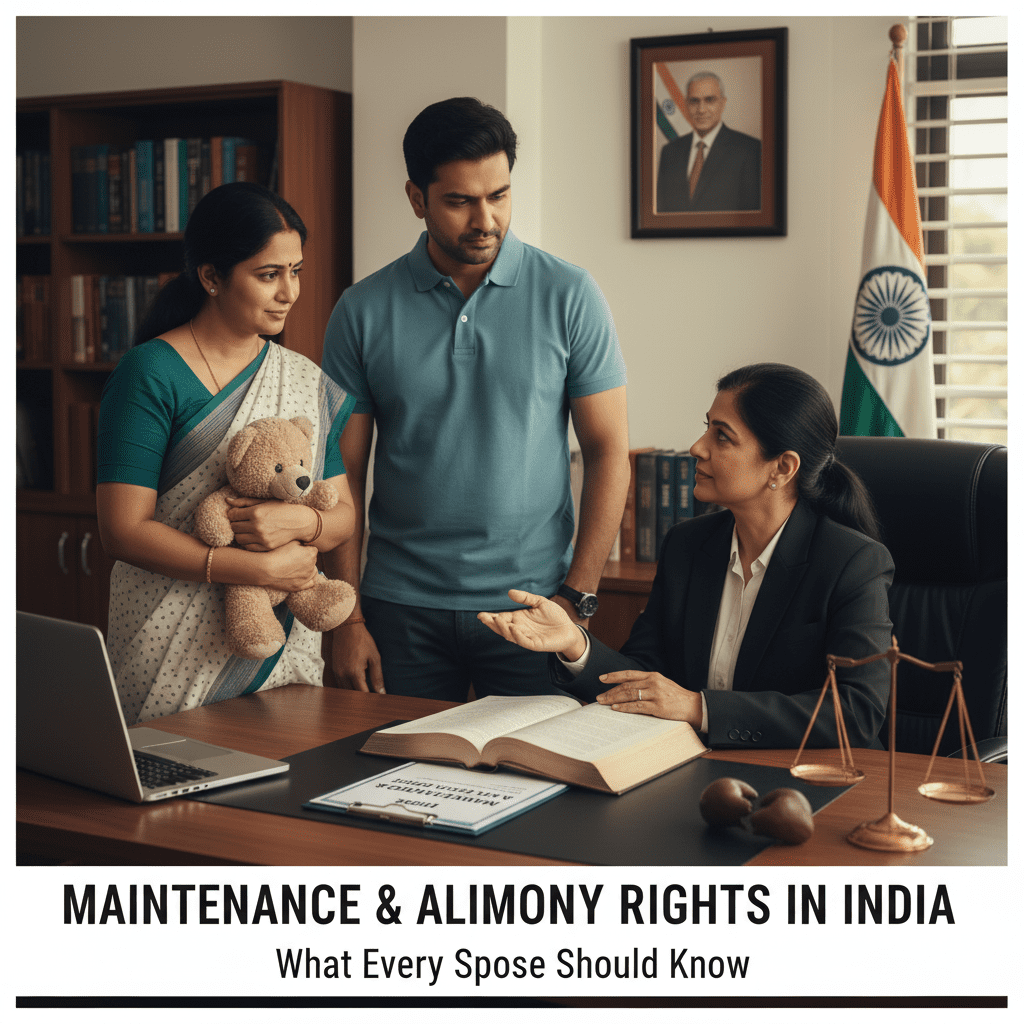Introduction
Divorce often creates financial pressure for both partners. During this time, many people feel confused about their maintenance and alimony rights. Because of this, they sometimes miss the support they deserve.
To make things easier, this guide explains the laws, types of alimony, eligibility rules, and court process in simple terms. As a result, you will clearly understand how maintenance works in India.
What Is Alimony?
Alimony is the financial support a court orders one spouse to pay. It helps the other spouse maintain a stable life after divorce. In most cases, the court decides the amount based on the financial needs of the spouse.
Additionally, alimony may be paid as a monthly amount or as a one-time full settlement.
Maintenance & Alimony Laws in India
In India, several laws govern maintenance. For Hindus, the law includes the Hindu Marriage Act. All communities can seek support under CrPC Section 125, which is simple and fast.
Moreover, the Domestic Violence Act and the Special Marriage Act also provide clear rights. Each law aims to protect the dependent spouse and ensure fair financial support.
Types of Maintenance in India
1. Interim Maintenance
Courts grant interim maintenance during the divorce case. It covers immediate expenses and daily needs.
2. Permanent Alimony
Permanent alimony is ordered after the final divorce decree. It may be a lump-sum amount or monthly support.
3. Child Maintenance
Child maintenance covers school fees, medical costs, and daily expenses. Courts always focus on the welfare of the child.
4. Maintenance Under CrPC 125
This law provides quick relief. It helps wives, children, and parents who cannot support themselves.
Who Can Claim Maintenance?
Several people can apply for maintenance in India. A legally married wife can file for support. Children can also claim maintenance through their parents.
Furthermore, a husband may ask for support if he has genuine financial limitations.
How Courts Calculate Alimony in India
Courts look at several factors before deciding the amount. They review the income of both partners. They also check the standard of living during marriage.
Additionally, the court considers age, health, assets, and responsibilities. Due to these factors, the final amount may differ from case to case.
When Can Courts Reject Maintenance?
Courts may reject a maintenance claim in some conditions. For example, if the spouse has enough income, the claim may be denied.
Also, if the spouse remarries or refuses to live together without reason, the court may dismiss the request.
How to Apply for Maintenance
You can apply for maintenance in several ways. You may file a petition in the Family Court. You can also approach the Magistrate Court for CrPC 125 cases.
Moreover, in domestic violence cases, you can seek help through a Protection Officer.
Documents Needed for Maintenance Claim
To support the case, you must submit key documents. These include your marriage certificate, ID proof, and income details.
Additionally, bank statements, property records, and child-related expenses strengthen the claim.
Rights of the Husband and Wife
Wife’s Rights
A wife can claim maintenance even if she earns, as long as her income is not enough. She may also claim support for children.
Husband’s Rights
A husband can ask for maintenance if he cannot earn due to valid reasons. He can also challenge unfair or false claims.
One-Time Settlement vs Monthly Maintenance
In many cases, courts offer both options. A one-time settlement ends all future claims. However, monthly maintenance provides ongoing financial support.
Therefore, the court chooses the option that suits the spouse’s needs.
Conclusion
Maintenance laws in India aim to offer financial stability after divorce. With the right guidance, spouses can protect their rights and secure fair support.
If you need help, our maintenance and alimony lawyers in Delhi can guide you through every step.


